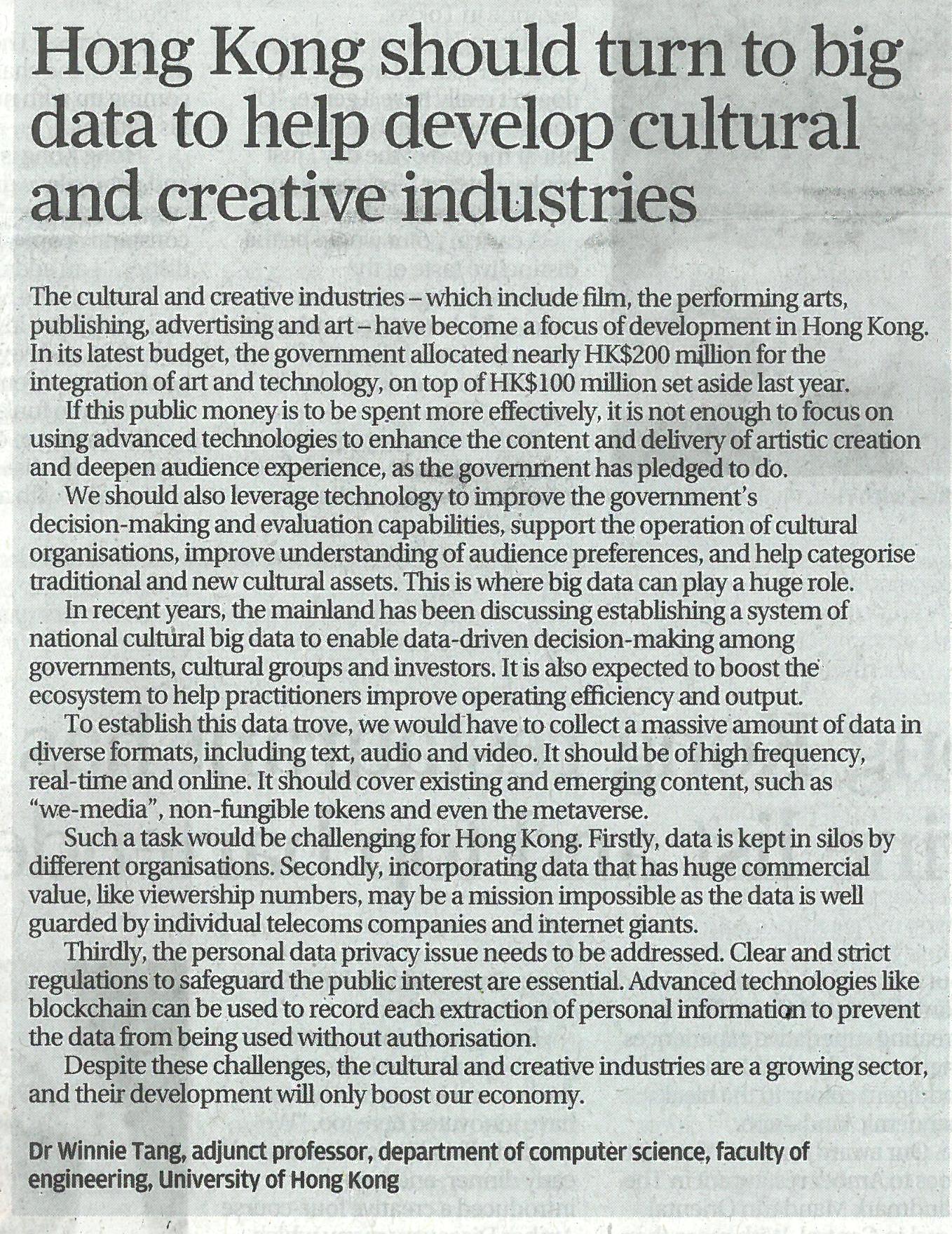網上版請按此

Hong Kong should turn to big data to help develop cultural and creative industries
The cultural and creative industries – which include film, the performing arts, publishing, advertising and art – have become a focus of development in Hong Kong. In its latest budget, the government allocated nearly HK$200 million for the integration of art and technology, on top of HK$100 million set aside last year.
If this public money is to be spent more effectively, it is not enough to focus on using advanced technologies to enhance the content and delivery of artistic creation and deepen audience experience, as the government has pledged to do.
We should also leverage technology to improve the government's decision-making and evaluation capabilities, support the operation of cultural organisations, improve understanding of audience preferences, and help categorise traditional and new cultural assets. This is where big data can play a huge role.
In recent years, the mainland has been discussing establishing a system of national cultural big data to enable data-driven decision-making among governments, cultural groups and investors. It is also expected to boost the ecosystem to help practitioners improve operating efficiency and output.
To establish this data trove, we would have to collect a massive amount of data in diverse formats, including text, audio and video. It should be of high frequency, real-time and online. It should cover existing and emerging content, such as "we-media", non-fungible tokens and even the metaverse.
Such a task would be challenging for Hong Kong. Firstly, data is kept in silos by different organisations. Secondly, incorporating data that has huge commercial value, like viewership numbers, may be a mission impossible as the data is well guarded by individual telecoms companies and internet giants.
Thirdly, the personal data privacy issue needs to be addressed. Clear and strict regulations to safeguard the public interest are essential. Advanced technologies like blockchain can be used to record each extraction of personal information to prevent the data from being used without authorisation.
Despite these challenges, the cultural and creative industries are a growing sector, and their development will only boost our economy.
Dr. Winnie Tang
Adjunct Professor, Department of Computer Science, Faculty of Engineering; Department of Geography, Faculty of Social Sciences; and Faculty of Architecture, The University of Hong Kong